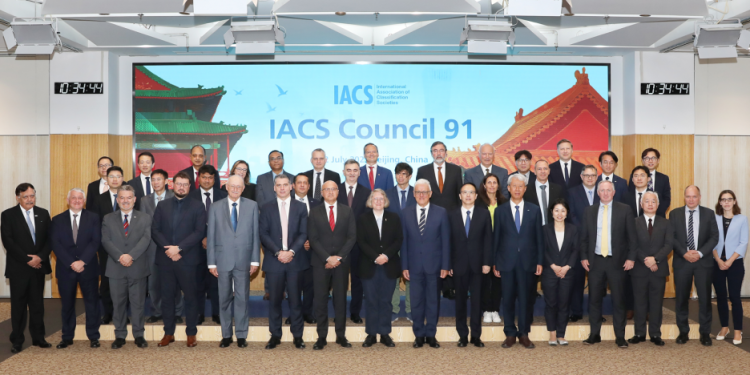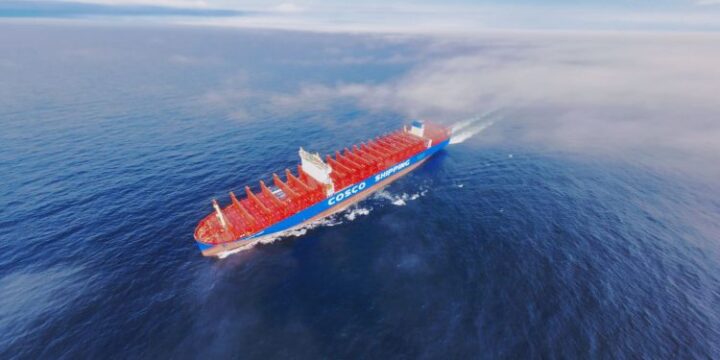July 9, 2025

The International Association of Classification Societies (IACS) Council met in Beijing last week (C91) to assess and advance the Association’s progress on the safe decarbonisation and digital transitions, on the further development of Common Structural Rules (CSR) and on the joint initiatives currently underway.
Progress on safe decarbonisation efforts and technical guidance on alternative fuels
As announced, three years after the launch of its Safe Decarbonisation Panel, the IACS Council welcomed the rapid progress made in developing technical guidance across a range of key technologies that support the introduction of new fuels and technologies on both new builds and the existing fleet.
In line with IACS’s technology-neutral approach, IACS instruments now cover Ammonia, Methanol, Hydrogen, Batteries and Carbon Capture, while also working with flag States on matters such as Gas Dispersion Analysis and risk assessments for alternative fuels as required by the IGF code. The Council also welcomed IACS’ preliminary work in assessing its potential role in the introduction of nuclear technologies.
Advancing safe digital transformation
The more recently constituted Safe Digital Transformation Panel (Jan ’24) has been no less active and C91 welcomed the valuable work undertaken to clarify IACS’ role in digitalisation, cyber systems and marine autonomous surface ships, as well as in sharing these important conceptualisations with IMO at its FAL49 meeting earlier this year in support of its comprehensive digitalization strategy.
Resolutions addressing digitalisation and MASS
IACS Council also highlighted the development of IACS Resolutions on a diverse range of digital issues including cybersecurity controls for existing ships, vessel asset inventory for computer-based systems, classification of complex systems which utilize computer-based systems, a protocol on format definition and exchange of 3D model, risk assessment for MASS (Maritime Autonomous Surface Ships), and communications and remote connectivity for MASS.
Collaboration with industry and stakeholders
IACS Council recognised the close interaction with other industry bodies in these areas, noting the work with CIMAC to advance digital discussions at IMO, with BIMCO on automated Fuel Consumption Data Gathering (to name just two) and IACS’ involvement in the many Joint Industry Working Groups, ranging from Anchoring Equipment to Underwater Radiated Noise.
Common Structural Rules (CSR) review progress
The further development of the Common Structural Rules (CSR) were discussed at C91, where Council reviewed the input received from the extensive and ongoing consultation exercise that is being undertaken with industry. C91 noted the intensive efforts that had been made to provide additional, detailed technical background data and explanations to the many and varied questions raised.
Council further recognized that it was incumbent on IACS to demonstrate to all stakeholders that the revised CSR would deliver the same or greater level of safety as the current rules. C91 noted that providing this level of confidence would best be achieved by finalising the consequence assessment based on a list of suitable vessels that represented a good proportion of the Oil Tanker and Bulk Carrier fleets.
Reaffirming its commitment to working with industry throughout the CSR review process, Council noted that allowing industry adequate time to comment on the results of the Consequence Assessments meant that the previously announced timetable for adoption of the new CSR should now be considered as indicative only, and this would be kept under active review pending further feedback.
ESG and IQARB Framework Development
On other matters at C91, IACS Council discussed integrating Environmental, Social and Governance (ESG) principles into the governance of the association. Recognising that many IACS Members have their own ESG policies, C91 agreed that in developing these principles, they would apply to the activities IACS undertakes as an association and their objectives would need to be closely integrated to IACS’ core mission of safety and environmental protection.
IACS relationship with the International Quality Assessment Review Body (IQARB) was also discussed. Noting its new legal status, independence and ever-greater recognition by IMO and individual flag States, Council emphasised the importance of IACS continuing to play a leading role in its ongoing development and was pleased to adopt a comprehensive framework document that will govern how IACS can continue to provide expert input and guidance to the IQARB.
IACS ability to deliver on its core mission of delivering substantive, detailed, technical contributions to the full range of industry discussions was reflected in the range of IACS instruments that C91 was invited to consider. Our Association’s sustained leadership can be seen in our discussions on the decarbonisation and digital transitions, ESG and IQARB, while our commitment to working with industry partners manifests itself in our strong commitment to joint industry groups and in our flexible, responsive approach to evolving the Common Structural Rules.
…said Roberto Cazzulo, Council Chair, IACS.
The IACS Council meets twice a year and this was the 91st Council meeting since the founding of IACS in 1968. This meeting took place in Beijing, hosted by the China Classification Society and was attended by senior representatives of all 12 Members.

